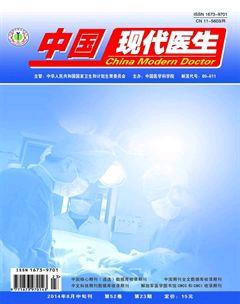综合性护理干预对冠心病介入治疗患者心理状态及生活质量的影响
刘琦 张奇军
[摘要] 目的 探讨综合性护理干预对冠心病介入治疗患者心理状态及生活质量的影响。方法 选取2009 年 1月~2014 年 1月期间在我院行冠心病介入治疗的患者60例,将上述患者随机分成干预组与对照组各30例,对照组患者给予随机对症护理,干预组于介入手术围术期着重实施综合性护理干预措施,比较两组的SAS评分及QOL评分。结果 术后3 d,干预组和对照组患者的SAS评分均较术前1 d及术后1 d明显降低,且干预组术后3 d的SAS评分明显低于对照组 (P<0.05);出院后3个月,干预组和对照组患者的生理、心理、独立性、社会关系、环境和生活质量总分均较干预前显著提高,且干预组明显高于对照组(P<0.05)。结论 围术期实施综合性护理干预是冠心病患者介入治疗过程的重要组成部分,可以缓解患的紧张、焦虑的心理状态,提高手术成功率,进一步提高患者的生活质量。
[关键词] 冠心病;介入治疗;综合性;护理干预;生活质量
[中图分类号] R473.5 [文献标识码] B [文章编号] 1673-9701(2014)23-0068-04
[Abstract] Objective To investigate the effect and impact on mental state and quality of coronary intervention life of patients of comprehensive nursing intervention. Methods From January 2009 to January 2014 in our hospital, 60 patients with coronary heart disease by coronary intervention were randomly divided into intervention group and the control group, each of 30 patients, the control group were randomly given symptomatic treatment, observation group focused on the implementation of integrated perioperative nursing interventions, the SAS score and QOL score were compared. Results After three days, the intervention group and the control group of SAS scores were lower than that in one day before and after surgery, and the SAS score of intervention group after three days was significantly lower than the control group (P<0.05); After 3 months of discharge, physiological, psychological, independence, social relationships, environment and quality of life scores in intervention group and the control group were significantly improved than before the intervention, and the intervention group were significantly higher than the control group(P <0.05). Conclusion Implementation of comprehensive perioperative nursing intervention is an important part of the process of intervention in patients with coronary artery disease, patients can ease tension, anxiety mental state, improve the success rate of surgery and can further improve the quality of life of patients.
[Key words] Coronary heart disease; Interventional therapy; Comprehensive; Nursing interventions; Quality of life
经皮冠状动脉介入(percutaneous coronary intervention,PCI)治疗冠心病具有创伤小、见效快、疗效显著等优点,现已经广泛应用于临床[1]。但由于冠脉介入术风险高、费用贵、手术后并发症的存在,冠心病患者在手术前后普遍存在着焦虑心理,严重影响其临床疗效和远期预后、生活质量。因此,冠心病介入治疗的临床效果不仅与医师的操作技术经验密切相关,还与围手术期综合性护理干预措施的实施密不可分[2]。本研究旨在探讨综合性护理干预对冠心病介入治疗患者心理状态及生活质量的影响,现报道如下。
1 资料与方法
1.1临床资料
选取2009 年 1月~2014 年 1月期间在我院行冠心病介入治疗的患者60例,排除对β受体阻滞剂、血管紧张素转换酶抑制剂、调脂药物、抗血小板聚集药物过敏者,排除患有恶性肿瘤、严重肝肾功能不全等疾病及精神异常者。随机将上述患者分成干预组与对照组各30例,其中干预组30例,男19 例,女11例,年龄 48~72 岁,平均(55.2±7.8)岁;单支冠脉病变14例,双支病变12例,三支病变4例。合并高血压11例,糖尿病8例。对照组 30 例,男20例,女10 例,年龄 46~73 岁,平均(54.3±6.5)岁。其中单支冠脉病变16例,双支病变9例,三支病变5例。合并高血压12例,糖尿病5例。两组患者性别、平均年龄、冠脉病变及合并高血压、糖尿病等一般资料比较,差异无统计学意义(P>0.05),具有可比性。见表1。endprint

